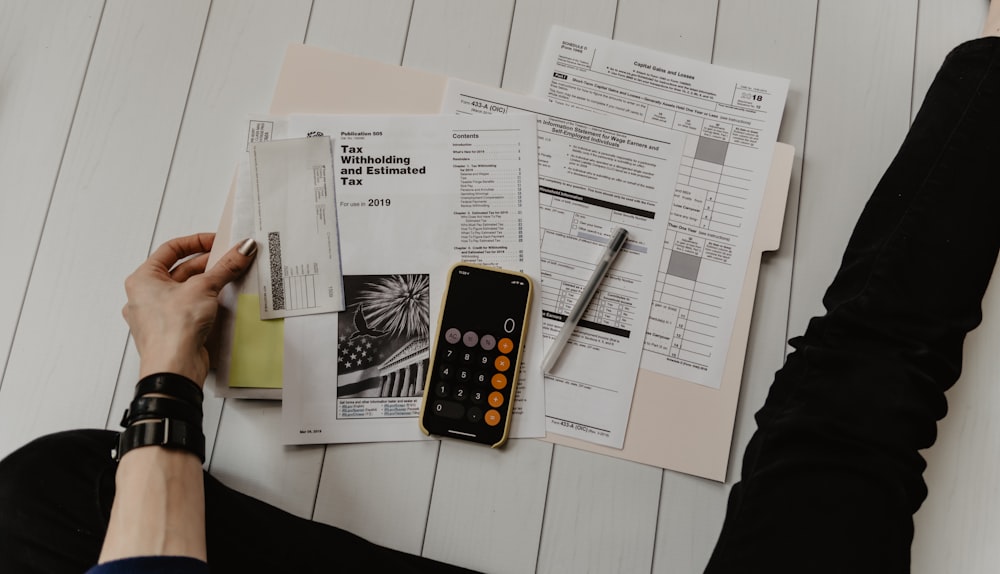When buying a new home, it’s essential to factor in all the possible additional costs. These can add up quickly, so you should familiarize yourself with them as soon as you decide to search for a new home. Accounting for additional expenses in your budget will make the already stressful process of buying a home a bit easier. These are the extra costs of buying a new home that you need to know about.
Property taxes
As a homeowner, you’re required to pay property taxes. The property tax is determined by the city, township, or country where your new property is located (the effective average rate is 1.1% of the home’s assessed value).
Sometimes property taxes are easy to forget to include in your budget calculations as they’re often rolled in with your mortgage.
Closing Costs
When the real estate transaction comes to an end, you’re required to pay a plethora of fees known as closing costs. To avoid unpleasant surprises, you should talk to your realtor and ask them about the specific closing costs. They usually include:
- Lawyer fees
- Cost of inspection
- Document fees
- Appraisal fees
- Surveyance fee
- Sales brokerage commission
- Title cost
- Mortgage application
- Home warranty
Paying For The Escrow
Making escrow is an important part of the budget you need to buy a new home. Generally, buyers are asked to pay for escrow upfront to cover some costs (insurance, property taxes, etc.).
Earnest Money
Earnest money, a form of security deposit made in large transactions such as real estate dealings, is paid upfront before filling out the paperwork. Since it’s a deposit, home buyers will receive the money-back once the transaction goes through. If the buyer should back out of the deal, they probably won’t get their deposit back.
The amount of earnest money ranges from a few hundred to thousands of dollars; the precise amount ought to be listed in the contract.
School Taxes
Homebuyers that have children who go to or about to start school are probably happy to pay more in school taxes if it ensures high-quality education for their children. Those who don’t have school-age children might want to look into what school taxes they’re expected to pay because it could be a deal-breaker. The amount of school taxes varies from district to district.
Homeowner’s Insurance
Homeowner’s insurance is not that much of a surprise expense since banks and mortgage companies require it before issuing a loan.
Oftentimes homeowner’s insurance is included in monthly mortgage rates. It’s essential not to overlook this expense as it could go up or down depending on your needs. For instance, most basic homeowner’s policies don’t provide coverage against natural disasters like hurricanes, floods, or earthquakes. If you’re buying a house in an area prone to disasters, you’ll probably want to pay for extra insurance.
Interest Rates
There is no way around interest rates – they’re the inevitable part of buying a new home. The good news is that having a good credit card rating will get you a lower interest rate.
Moving Costs
Don’t forget to account for all the moving costs. Moving vans are usually expensive, depending on how far your new home is. If you’re making a long-distance move, you have to think about moving costs upfront as they will likely cost you an arm and a leg.
Utilities
Those who are moving to a bigger home need to consider that the utilities might cost a lot more than they’re used to. It’s important to consider costs for:
- Gas
- Electricity
- Sewer
- Water
- Cable
- Internet
Costs for installing Internet, cable, and other services can add up quickly, so you need to be aware of these expenses beforehand and make sure to include them when you’re planning your budget.
Home Maintenance and Repairs
Depending on the state of the home you’re buying, you will need to invest a substantial amount into repairs and renovations. This is particularly true if you’ve purchased a fixer-upper. Even if your new home is in somewhat good condition, never underestimate the possibility of an extra cost appearing out of nowhere.
Some repair costs are not so expensive, while some might require you to cough up thousands of dollars. Furthermore, some are not that urgent, and some require immediate renovation, for example, if the roof is in poor condition, you will need to get on that as soon as possible. Repairs that cannot wait can end up costing you a lot more than you’ve hoped.
That’s why it’s smart to always have a portion of your budget dedicated to the expenses that cover home maintenance and repairs.
The Takeaway
Buying a new home will undoubtedly carry a myriad of unplanned expenses. By doing research and preparing yourself for additional costs, you’re staying ahead of things.
If you hadn’t thought about all the extra costs and how much they will take out of your pocket, perhaps you’re not quite ready to buy a new home yet. While you’re saving up more money, looking at homes in Minnesota, New York City or Las Vegas it’s the perfect time to take a look at some homes for rent.

